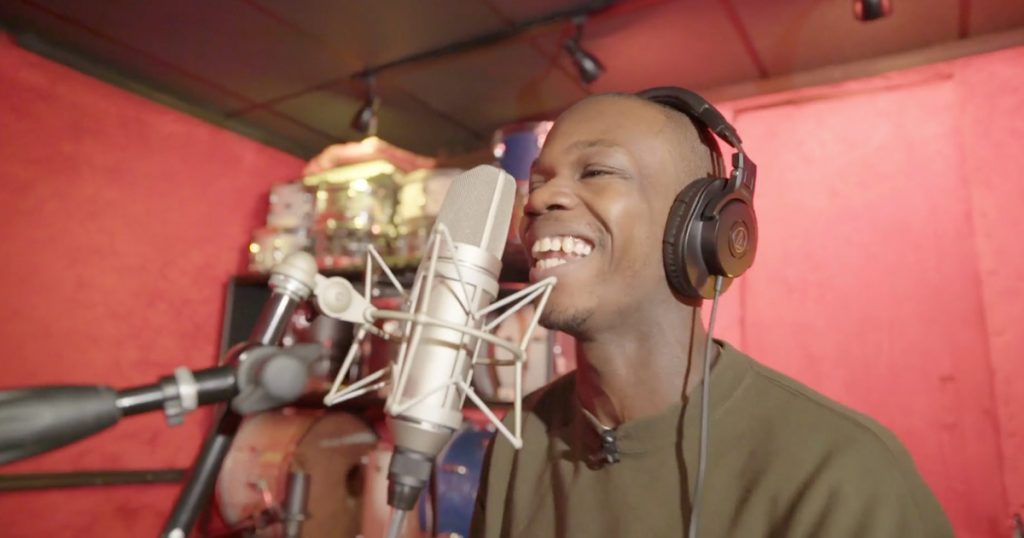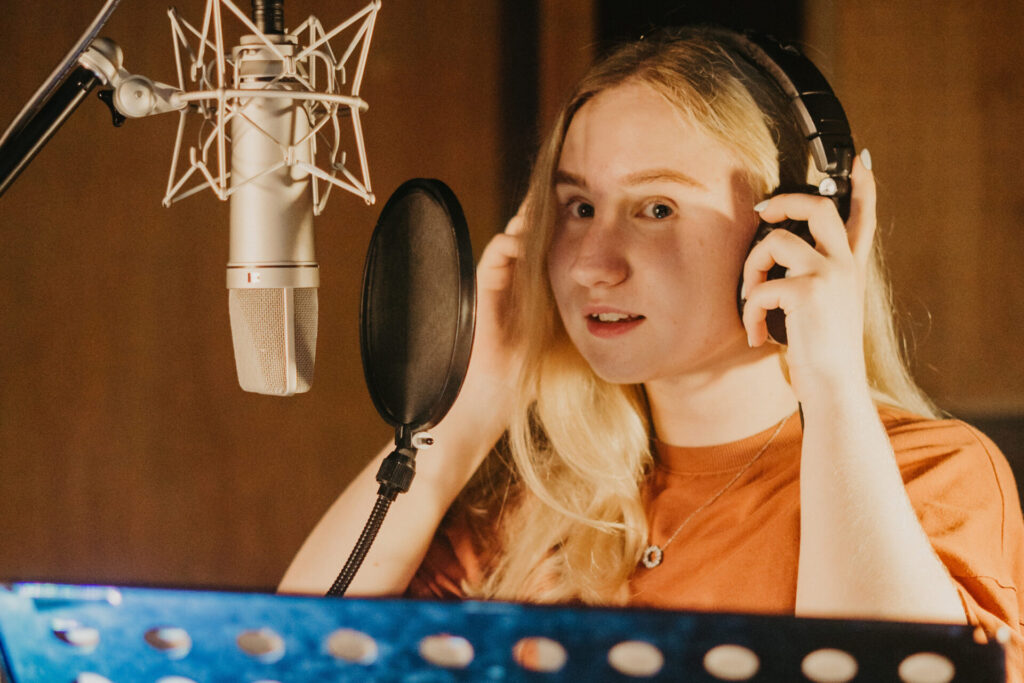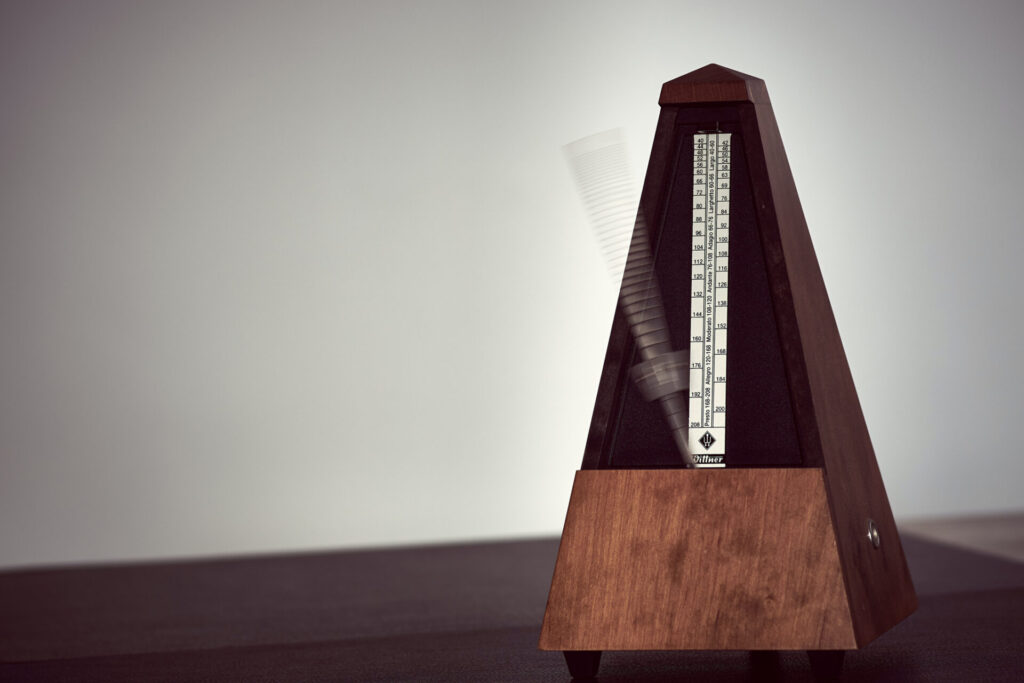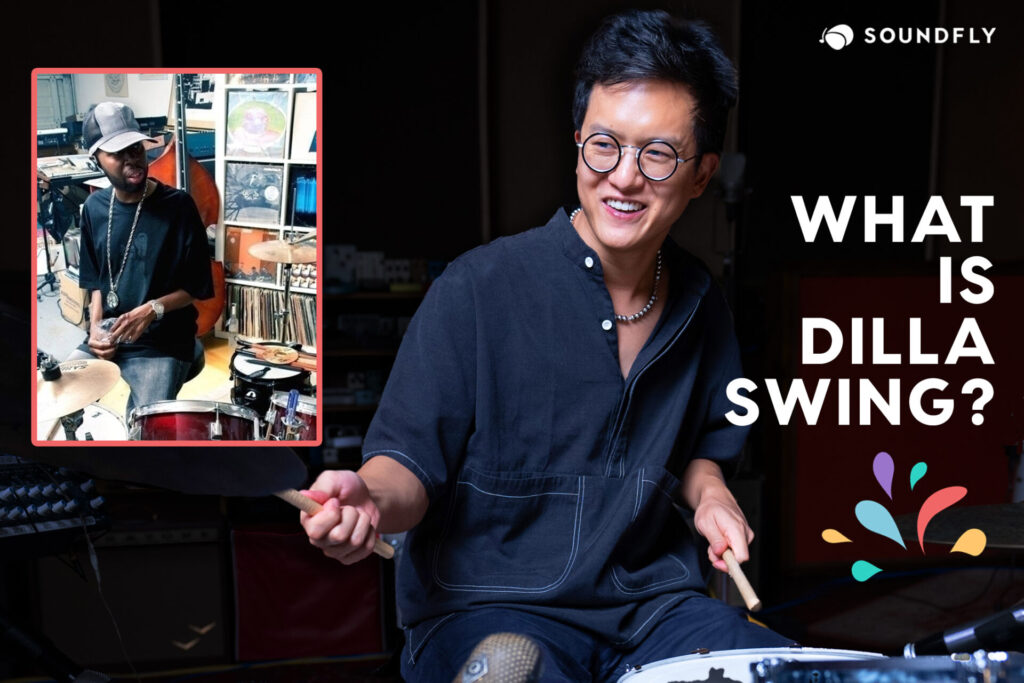+ Learn from Grammy-winning pop artist Kimbra how to harness the full creative potential of your voice in song. Check out her course.
Singing is one of the most vulnerable acts a musician can do. Not to mention, being on stage in general can be nerve-wracking. In fact, public speaking is widely said to be the number one fear for humans; with death coming in second!
So, it’s no wonder singers may experience a crippling sense of anxiety before big shows or recording sessions. As it turns out, for some singers, sessions are scarier than shows.
Luckily a lot is known about this phenomenon, so there’s a lot you can do about it. Most of the following techniques here are helpful whether you’re going into a session or a show, and you can build the routine that works best for you. Let’s dive in!
Physical Relaxation Techniques
Tensing up before a session is a matter of fear and anxiety, which has some specific physiology associated with it. Specifically, nervousness or stage fright is your body going into fight-or-flight mode (called the sympathetic nervous system). Since this is physical, you can cause your body to get out of that mode with a few physical techniques.
Breathe
First and foremost, the king of relaxation: breathe! Specifically, focus on exhaling slowly. Some effective breathing exercises include diaphragmatic breathing, purse-lipped breathing, and resonant breathing. You’ll notice that these techniques are all similar. You sit in a relaxed position (or lay down) and breathe in a controlled, relaxed manner in order to slow and deepen your breath.
This helps trigger the parasympathetic nervous system (a.k.a., the state you’re in when you’re relaxed). You can couple your breathing exercises with mental techniques, and you can use them to lead into your vocal warmup.
Vocal Warmups
Vocal warmups are necessary anyway, so you might as well use them as part of your relaxation routine. Once you’ve gotten your breath under control, your vocal warmups will help relax your vocal cords and the muscles in your neck and face. At the same time, getting nice and physically prepared will help you feel more prepared and ready, which can work wonders for anxiety.
Full Body Warmups
Most actors and many singers add some full-body warmups into their routines to get the entire body relaxed and blood flowing. Try simple dynamic stretches like neck turns, torso twists, touching your toes, arm circles and the like. The point here isn’t get a monster workout, it’s to relax your body.
Pro Tip: drop your shoulders if you find yourself shrugging them up. This will help relax the neck, which will help a lot.
Tai Chi, QiGong, Yoga
This is just more physical relaxation and dynamic movement, but if you happen to practice Tai Chi, QiGong, or yoga, you can do some of your more relaxing routines as part of your pre-session prep.
Hydrate
Finally, being well-hydrated is basically the key to all health. So, stay hydrated, sipping warm water or tea (not so hot you burn yourself!). This, again, helps the body stay in relaxed mode, and can put your mind at ease (especially if you share the fear that your voice will dry out, which is common).
+ Learn production, composition, songwriting, theory, arranging, mixing, and more; whenever you want and wherever you are. Subscribe for full access!

Mental Relaxation Techniques
Ultimately, anxiety and fear all come from the mind, which is what’s causing your body to tense up in the first place.
So, it’s also wise to address these things at this level too. Bearing in mind, of course, that human psychology is super complex, and some singers need to do real work with a professional to get past their fears, here are some common techniques that help a variety of performers.
Visualize
Visualization is a go-to for top performers in any field, from actors to athletes to musicians. It’s simple to do. Just close your eyes and visualize your session (or show). This doesn’t have to be complicated for a performer. Sometimes just running through the songs in your head before you start singing is great. That way you don’t feel like you’re going in cold. You can do this while you do your initial breathing exercises.
Resolve to Love Yourself
This comes straight from voice and performance coach Steven Memel, who shares in workshops his personal technique for pre-show jitters. Resolve to love yourself no matter what the result. This technique can be a helluva lot more effective than telling yourself you’ll do well no matter what — because that’s a lie and you know it. You’ll probably do awesome, but you know there’s a chance you could screw it up, and that’s why you’re scared!
So if that doesn’t matter, it works wonders for anxiety.
It helps to know that no one show or session can ever make or break you, and particularly in a recording session, remember that you have as many shots as you need to get it right, and no one will judge you like you judge yourself. In fact, if you resolve to love yourself no matter what, there will be no one left to judge you.
+ Read more on Flypaper: “The “Green Apple Trick” for Recording Singers in a Session.”
A Few Don’ts to Close Out
Finally, a few things you might want to avoid if you’re trying to get chill before a session, and they’re the usual suspect. First of all, don’t overdo the caffeine, especially if it’s outside your normal caffeine intake period (the morning for most of us!). That can amp you up, increase your heart rate, and make it hard to relax. The same goes for pretty much any stimulant. They have their place, but not for relaxation.
Next, as mentioned before, don’t put too much stock in any one session. This isn’t just about how you think. Literally don’t rest your whole record’s success on one long day of singing at a $200/hr studio where you have to get it right today or you’re toast. Whether you schedule multiple sessions, build out your own vocal studio, or record as you go throughout the year, do what you can to reduce the pressure.
Finally, don’t go in unprepared. Nothing is scarier to a performer than going into a session or a show without a clue. That’s why we all have stress dreams about it! Instead, mitigate future fear by being super prepared. You can still bring a nonchalant attitude to the session and frankly, that’s easier when you know you’re ready.
Singing may be vulnerable and almost every performer gets anxious sometimes, but if you do your relaxation routine every time (do it for rehearsals too so everything seems normal at sessions and shows), you should be able to get past it reliably. Sing on!
Don’t stop here!
Continue learning with hundreds of lessons on songwriting, mixing, recording and production, composing, beat making, and more on Soundfly, with artist-led courses by Ryan Lott, Com Truise, Jlin, Kiefer, RJD2, and Kimbra: Vocal Creativity, Arranging, & Production.




